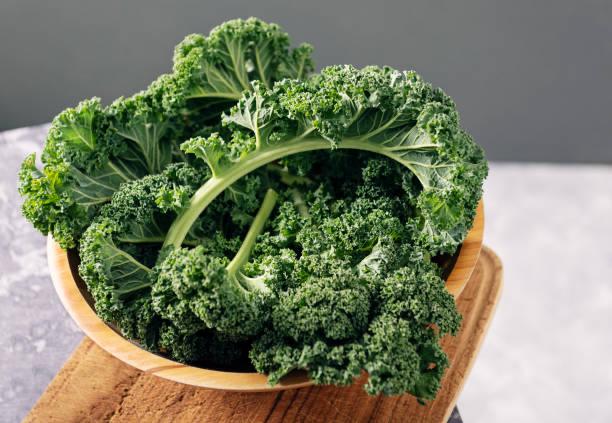In simple words Organic Kale is a nutrition superstar. Kale, a leafy green vegetable belonging to the Brassica family, has earned its status as a superfood due to its exceptional nutrient profile and associated health benefits. Incorporating kale into your diet can significantly contribute to overall health and well-being.
Nutrient Density
Kale is remarkably nutrient-dense, offering a wide array of vitamins and minerals essential for optimal health. A single cup of raw kale provides substantial amounts of vitamins A, C, and K. Specifically, it contains 3.7 times the Daily Value (DV) of vitamin K, which is crucial for blood clotting and bone health. Additionally, kale is a good source of vitamin B6, calcium, potassium, and magnesium, all vital for various bodily functions.
Antioxidant Properties
Rich in antioxidants such as lutein and zeaxanthin, kale helps combat oxidative stress by neutralizing free radicals. These antioxidants are particularly beneficial for eye health, potentially reducing the risk of cataracts and macular degeneration.
Anti-Inflammatory Effects
Kale contains compounds like glucosinolates, which, upon digestion, form bioactive substances with anti-inflammatory properties. Regular consumption of kale may help reduce inflammation, a common underlying factor in many chronic diseases.
Fiber Content
As a good source of dietary fiber, kale supports digestive health by promoting regular bowel movements and fostering a healthy gut microbiome. Adequate fiber intake is also associated with improved cardiovascular health and better blood sugar control.
Culinary Versatility
Kale’s versatility makes it easy to incorporate into various dishes. It can be enjoyed raw in salads, blended into smoothies, sautéed as a side dish, or baked into crispy kale chips. This adaptability allows for creative culinary applications, ensuring that adding kale to your diet can be both enjoyable and beneficial.
Conclusion
Incorporating kale into your diet offers numerous health benefits due to its rich nutrient profile, antioxidant properties, and versatility in meal preparation.
As with any food, it’s best consumed as part of a balanced diet to contribute to overall health and well-being.
Sources:
December 3, 2024
December 3, 2011
March 17, 2023

